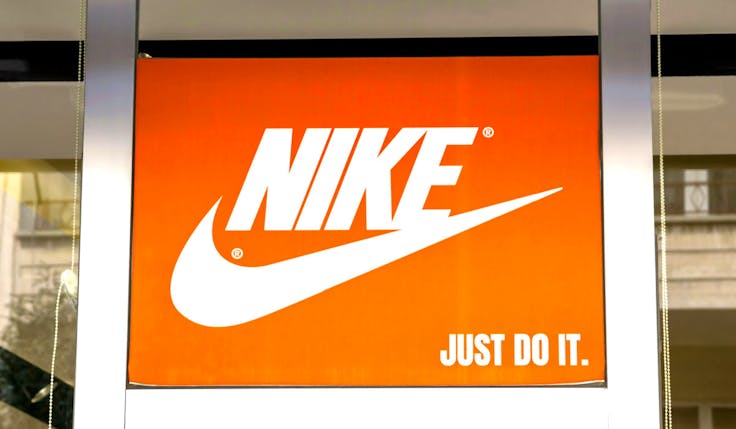Brands focusing on ‘social’ media are making us more antisocial
Despite the name, social media makes people less connected with their communities. Brands should focus more on bringing them together in the real world.

Over the past few months, Burst Your Bubble has been working with Digital Cinema Media (DCM) to showcase the cultural and commercial importance of cinema. One of the central themes is the role it plays in driving human connection – particularly among young people.
During the project, we were provided with a rather sober and concerning piece of data from the IPA Touchpoints time diary. For those of you unfamiliar with Touchpoints, it’s a day in the life of a representative sample of 6,000 adults in the UK. Each respondent keeps a diary via their mobile phone, detailing their activities every 30 minutes over the course of seven days. It turns out that the amount of time 16- to 34-year-olds are spending alone has been increasing steadily since 2014, from an average of 4.55 hours a day to 6.67 hours in 2023. That’s an increase of 47%, which outpaces the all-adult growth of 29%.
As demonstrated by the chart below, Covid accelerated this growth and it hasn’t returned to pre-pandemic levels. It’s also evident that the traditional lifestyle drivers of spending time alone are broken. Young people are now spending as much time on their own as the adult population as a whole.
 This is a good indicator of a broader problem because research has consistently demonstrated a link between feelings of isolation and poor mental health. Our research with DCM has revealed a deep feeling of disconnection amongst 16- to 34-year-olds in the UK. Six in 10 say that they feel distant from other people, 44% say they have moved further apart from others in the last few years, and almost six in 10 say there are fewer opportunities to share their interests and passions.
This is a good indicator of a broader problem because research has consistently demonstrated a link between feelings of isolation and poor mental health. Our research with DCM has revealed a deep feeling of disconnection amongst 16- to 34-year-olds in the UK. Six in 10 say that they feel distant from other people, 44% say they have moved further apart from others in the last few years, and almost six in 10 say there are fewer opportunities to share their interests and passions.
Global social media ad spend to approach £200bn in 2024
Brands pushing people apart
This has got me thinking about our own industry. There has been a lot of inward focus on mental health in recent years, as businesses seek to improve the wellbeing of their employees. However, things go very quiet when it comes to assessing our own contribution to this very real crisis in society – particularly amongst young people. You might not realise, but many of the current industry strategies are making us complicit in this crisis. Let me explain why.
CMOs are increasingly emphasising the role of cultural strategy and the need for brands to take their place in culture. Alongside this, marketers are intent on delivering a positive social impact. It’s clear that marketers recognise the importance of human connection in achieving these aims, but I believe the marketing worldview means that we’re going about it in the wrong way – we’re actually pushing people further apart.
The promise of technologically enabled communities doesn’t really hold up.
Those of you familiar with my columns will know that I have written extensively about the neoliberal, individualist worldview of marketers. It’s through this lens that we have an industry increasing its focus on what it thinks are the drivers of connection. We are obsessed with the mantra of techno-optimism, fandoms, hypertargeting and personalisation. Just recently, WARC reported that global social media ad spend is expected to reach £200bn in 2024.
Self-proclaimed ‘thought leaders’ espouse the era of social media and fandoms as the means to drive human connection and community. If this is the case, why are young people feeling more isolated than ever? The reality is that the promise of technologically enabled communities doesn’t really hold up. The ‘whole of the world at your fingertips’ digital narrative is simply hollow.
Our research found that three quarters of 16- to 34-year-olds say events that bring people together are more important than ever. Unsurprisingly, people are craving human connection, but it needs to be more tangible. The digital ‘experience’ just doesn’t cut it. This was really evident in the focus groups we did as part of the project. One person told us that he feels more connected to his girlfriend when they are watching a film in the cinema than when they are at home both glued to social media on their phones. There, he said it feels like there is a complete disconnect.
The 2024 Agenda: Social media becomes more widely used as a brand building tool
Genuine human connection
I’m fully aware that many of the decisions we make are driven by commercial necessity. This isn’t a call to abandon social media, or stop investing in tech innovation. However, it’s my belief that the pendulum has swung too far, and we need to redress the balance for the good of our brands and society as a whole.
Let’s take cinema as an example. It provides a powerful shared experience in which people feed off the energy of others. Using a range of frameworks from social psychology, we have been able to prove that watching a film in the cinema significantly reduces our individualistic view of other people in the audience and actually makes us feel closer to them. This offers positive community outcomes because it has the power to change how we collectively think about people we don’t even know. This can’t be said of social media. The same frameworks tell us that we feel no closer to people on social media than we do the average person on the street. Social media just isn’t that social.
I think we’d all want our brands to be visible in the places that reduce people’s feeling of isolation. It also makes commercial sense. Data from our proprietary research framework Signal shows that brands are built collectively, not individually. Tapping into people’s social intelligence and social norms are a crucial factor in building successful brands.
It’s my belief that the industry is prioritising things which come at the expense of creating genuine human connection and, in turn, of delivering a cultural, commercial and social impact for our brands. If we stop seeing people as a mere collection of atomised individuals, marketers might just help bring people closer together, instead of pushing them further apart.
Andrew Tenzer (@thetenzer) is co-founder of Burst Your Bubble.






